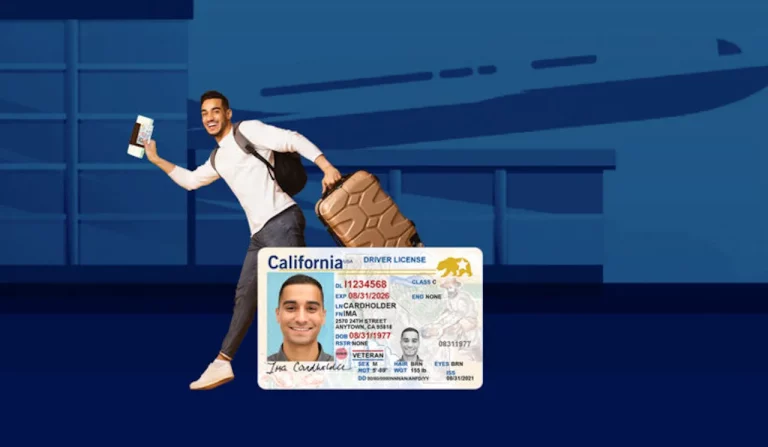Do Warnings Go On Your Driving Record In Texas? A Detailed Look
Getting pulled over and receiving a warning from a police officer can be an unpleasant experience. You may be left wondering if that warning goes on your permanent driving record, and what consequences it could have down the road. For Texas drivers, it’s important to understand how warnings are handled by the Department of Public Safety (DPS).
If you’re short on time, here’s a quick answer: In most cases, warnings are not placed on your permanent driving record in Texas. However, they may be logged internally by law enforcement.
Types of Warnings in Texas
When it comes to warnings issued by law enforcement officers in Texas, there are two main types: verbal warnings and written warnings. Each of these types serves a different purpose and has its own implications. Let’s take a closer look at each of them.
Verbal Warnings
A verbal warning is the most common type of warning that drivers receive. It is a verbal communication between the officer and the driver, where the officer informs the driver of their mistake or violation without issuing a written citation.
Verbal warnings are typically given for minor traffic infractions or first-time offenses. They serve as a reminder to the driver to be more cautious and follow traffic laws.
It is important to note that verbal warnings do not go on your driving record in Texas. They are not recorded by the Department of Public Safety (DPS) or any other official agency. However, it is always a good idea to take verbal warnings seriously and make an effort to improve your driving habits to avoid future citations.
Written Warnings
Unlike verbal warnings, written warnings are documented and recorded by law enforcement agencies in Texas. A written warning is a formal notice that is given to a driver for a traffic violation. It serves as a written record of the offense and can be used as evidence in future cases if necessary.
Although written warnings are not considered citations, they can still have an impact on your driving record. While they do not result in fines or points on your license, repeated written warnings for the same violation may raise red flags and could potentially lead to more serious consequences, such as increased insurance premiums or further legal action.
It’s worth mentioning that the information regarding the inclusion of written warnings on your driving record may vary depending on the state. In Texas, written warnings are not typically included in a driver’s record maintained by the DPS.
However, it’s always a good idea to confirm this information with local authorities or consult the official Texas DPS website for the most accurate and up-to-date details.
Official Driving Records in Texas
Maintained by the Texas DPS
The official driving records in Texas are maintained by the Texas Department of Public Safety (DPS). It is the primary agency responsible for overseeing driver’s license issuance and vehicle registration in the state.
The DPS keeps a comprehensive record of each individual’s driving history, including any violations, accidents, and other relevant information.
Having a centralized database for driving records ensures that accurate and up-to-date information is available to law enforcement agencies, insurance companies, and employers who require this information for various purposes.
The DPS takes the responsibility of maintaining these records seriously to ensure the safety of all road users.
Contents of Driving Records
Driving records in Texas contain various types of information that provide a comprehensive overview of an individual’s driving history. These records typically include:
- Personal Information: This includes the driver’s full name, date of birth, and address.
- License Status: It indicates whether the driver’s license is valid, suspended, revoked, or expired.
- Violations: Traffic violations such as speeding tickets, reckless driving, or DUI/DWI offenses are recorded in the driving record. These violations can have an impact on insurance rates and may lead to license suspension or other penalties.
- Accidents: Details about accidents, including date, location, and severity, are documented in the driving record. This information helps assess the driver’s history and potential risks.
- Points: Texas operates a point system where points are assigned for various traffic violations. Accumulating too many points within a specified period can result in license suspension or other consequences.
- Convictions: Any convictions related to driving offenses, such as driving under the influence, hit-and-run, or driving with a suspended license, are recorded in the driving record.
- License History: The driving record also provides a chronological history of the driver’s license, including issue dates, renewals, and any previous suspensions or revocations.
It’s important to note that driving records are confidential and can only be accessed by authorized individuals or entities, such as the driver themselves, insurance companies, employers, and government agencies.
Access to these records is strictly regulated to protect privacy and prevent misuse of personal information.
If you need to obtain a copy of your driving record in Texas, you can visit the official website of the Texas DPS or use their online services. The DPS provides detailed instructions on how to request and obtain a copy of your driving record.
For more information on official driving records in Texas, you can visit the Texas Department of Public Safety website.
When Warnings Go On Your Record
When it comes to driving records in Texas, the question of whether warnings go on your record is a common one. The answer, however, is not as straightforward as you might think. In Texas, warnings issued by law enforcement officers do not typically go on your driving record.
This means that receiving a warning for a traffic violation will not result in any points being added to your driving record, nor will it affect your insurance rates. Instead, warnings are meant to serve as a reminder to drivers to obey traffic laws and avoid future violations.
Multiple Warnings for the Same Offense
While individual warnings may not go on your driving record, it’s important to note that multiple warnings for the same offense can raise red flags. Law enforcement officers have the discretion to issue warnings or citations for traffic violations.
If you receive multiple warnings for the same offense within a short period of time, it could indicate a pattern of unsafe driving behavior. In such cases, it is possible that a law enforcement officer may choose to escalate the situation and issue a citation, which will go on your driving record and may result in points being added.
It is always best to take warnings seriously and use them as an opportunity to reflect on your driving habits and make necessary changes to avoid future violations. Remember, the goal of warnings is to encourage safer driving, not to punish or penalize drivers.
Warnings for Serious Traffic Violations
While warnings are generally not recorded on your driving record, it’s important to note that this may not be the case for more serious traffic violations. For example, warnings for offenses such as driving under the influence (DUI) or reckless driving may be documented and could potentially have consequences on your driving record.
These types of violations are considered to be more severe and may result in more than just a warning.
If you are issued a warning for a serious traffic violation, it is crucial to take it seriously and seek legal advice if necessary. Ignoring a warning for a serious offense can have serious repercussions, including fines, license suspension, or even criminal charges.
For more information about Texas driving records and the specific guidelines regarding warnings, it is always best to consult official sources such as the Texas Department of Public Safety. They can provide you with the most up-to-date and accurate information regarding your driving record and any potential consequences of warnings or citations.
Checking Your Driving Record
When it comes to checking your driving record in Texas, there are a couple of options available to you. Whether you’re looking to review your driving history for personal reasons or to ensure accuracy, it’s important to know how to obtain this information.
Requesting a Copy from Texas DPS
The first option is to request a copy of your driving record directly from the Texas Department of Public Safety (DPS). This can be done online, by mail, or in person at a local DPS office. The online option is convenient and allows you to receive your driving record instantly.
Simply visit the Texas DPS website and follow the instructions to request your record.
It’s worth noting that there may be a fee associated with obtaining your driving record from the DPS. The fee varies depending on the type of record you request and the method of delivery. However, the information you receive will be comprehensive and up-to-date, making it an excellent option for those who want an official record.
Third-Party Driving Record Services
If you prefer a more convenient and hassle-free option, you can also use third-party driving record services. These services are available online and provide a quick and easy way to access your driving record.
They often offer additional features such as email notifications for any changes to your record or the ability to order multiple copies for different purposes.
It’s important to choose a reputable third-party service to ensure the accuracy and security of your driving record. Look for services that have positive customer reviews and secure payment options. Additionally, be aware that these services may charge a fee for their convenience.
One such reputable third-party service is www.drivingrecord.us.com. They offer a user-friendly interface, quick access to driving records, and a secure platform to protect your personal information.
Regardless of the method you choose, regularly checking your driving record is essential for staying informed about your driving history. It allows you to identify any errors or inaccuracies that could affect your insurance rates or driver’s license status.
By staying proactive, you can ensure that your driving record is in good standing and take any necessary steps to address any issues that may arise.
Removing Warnings from Your Record
Having warnings on your driving record in Texas can have various consequences, such as increased insurance premiums or even license suspension. However, there are options available to remove these warnings from your record.
This section will explore two common methods: expungement and waiting periods.
Expungement
Expungement is a legal process that allows you to remove certain offenses or warnings from your driving record. In Texas, expungement is available for specific offenses, such as speeding tickets or non-serious traffic violations.
It’s important to note that not all offenses are eligible for expungement.
To initiate the expungement process, you would typically need to file a petition with the court. The court will then review your case and determine if you meet the eligibility criteria. If approved, the warning will be removed from your driving record, and it will no longer be visible to insurance companies or potential employers.
It’s worth mentioning that expungement is not a guaranteed process, and the outcome will vary depending on the specific circumstances of your case. Consulting with a qualified attorney can help you understand your options and increase your chances of a successful expungement.
Waiting Periods
Another way to remove warnings from your driving record is by waiting for a specified period of time. In Texas, most warnings will automatically be removed from your record after a certain number of years. The exact waiting period will depend on the type of warning and the severity of the offense.
For example, minor traffic violations, such as a speeding ticket, may stay on your record for three years. However, more serious offenses, like a DUI, can remain on your record for much longer, potentially up to ten years or more.
It’s important to note that waiting periods can vary depending on the state and the specific offense. Checking with the Texas Department of Public Safety (DPS) or consulting with a legal professional can provide you with accurate information about the waiting periods for different offenses.
Remember: Removing warnings from your driving record can have significant benefits, such as lower insurance premiums and improved employment prospects. It’s essential to understand the options available to you and take appropriate action to clear your record.
Conclusion
While warnings are handled differently than traffic tickets in Texas, multiple warnings or those for serious offenses may still end up on your permanent driving record. Checking your own record periodically and exercising caution after receiving a warning can help Texas drivers avoid more serious consequences down the line.








